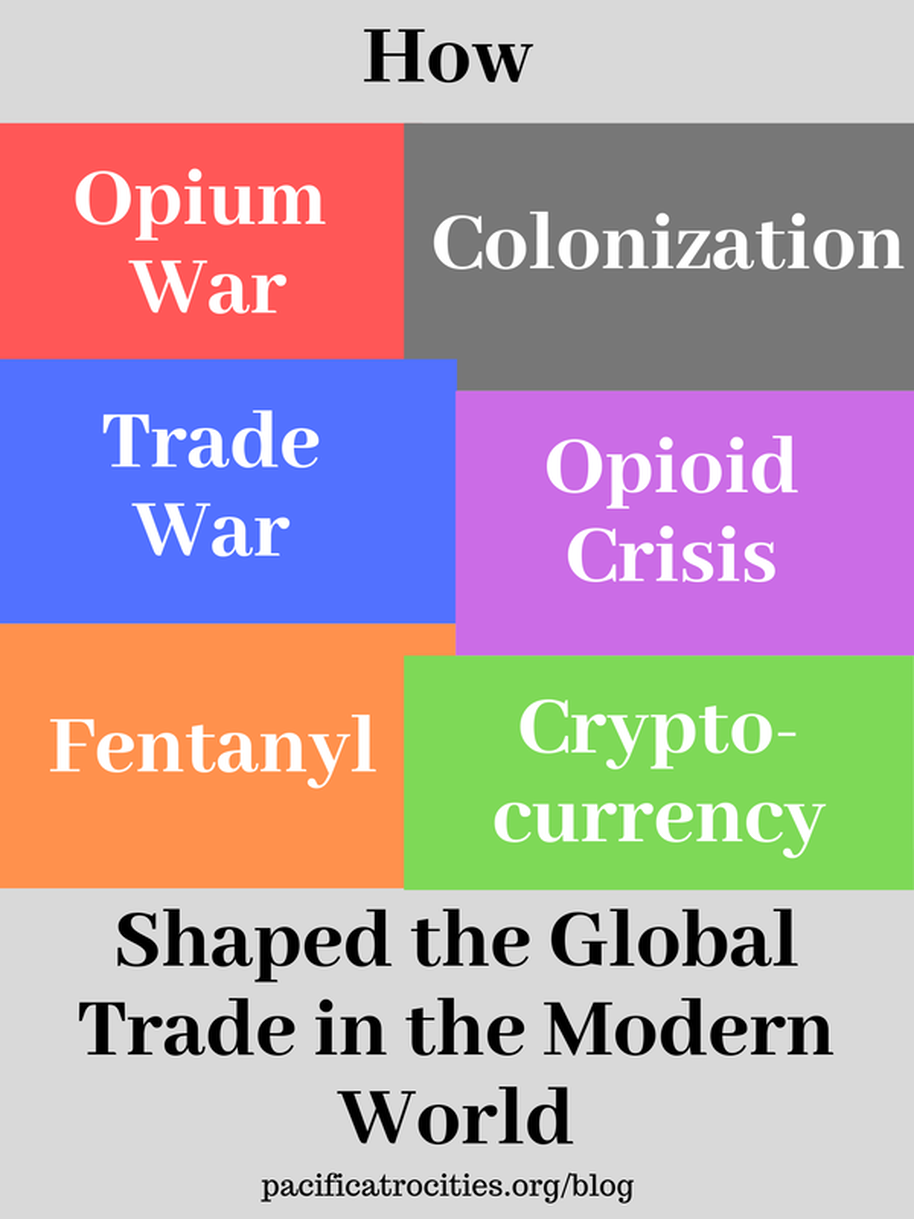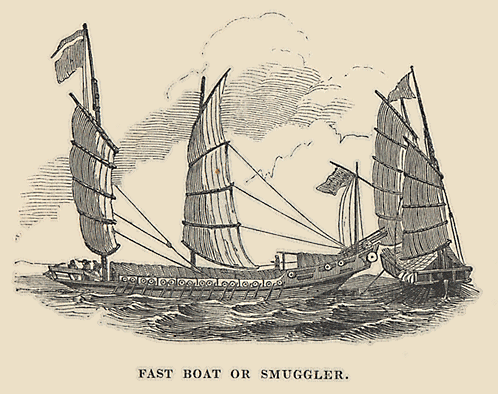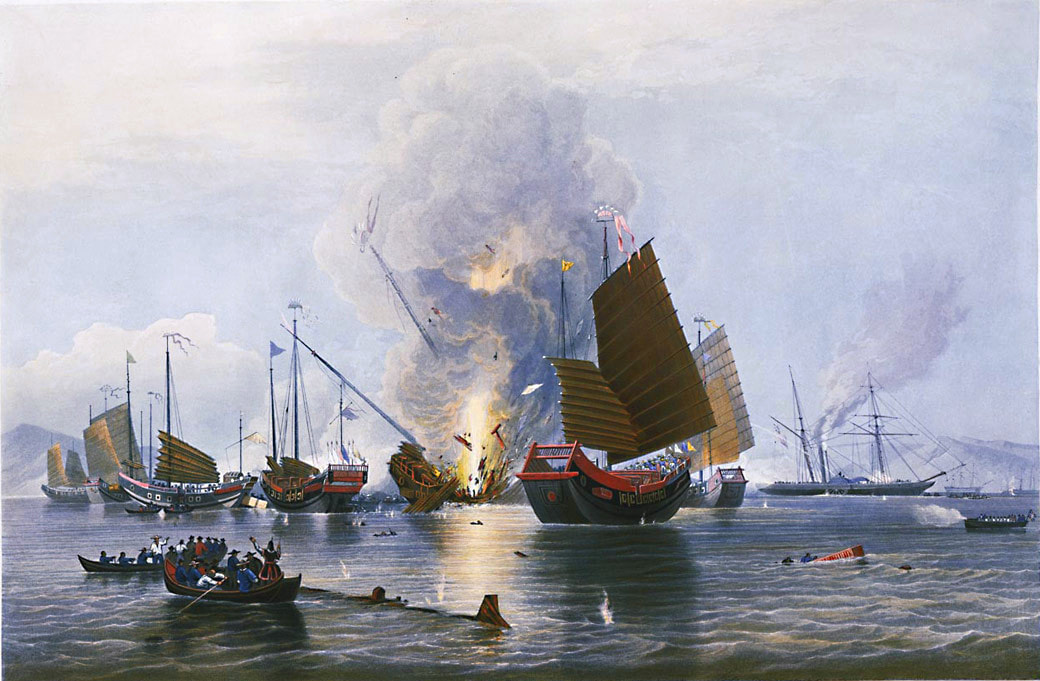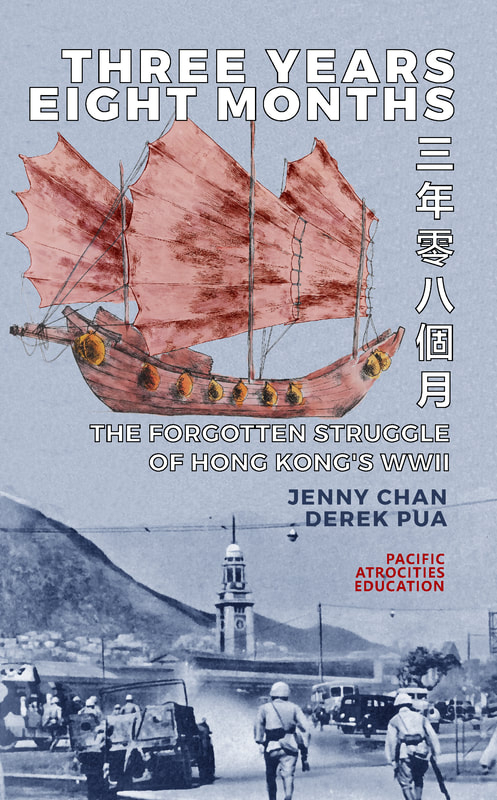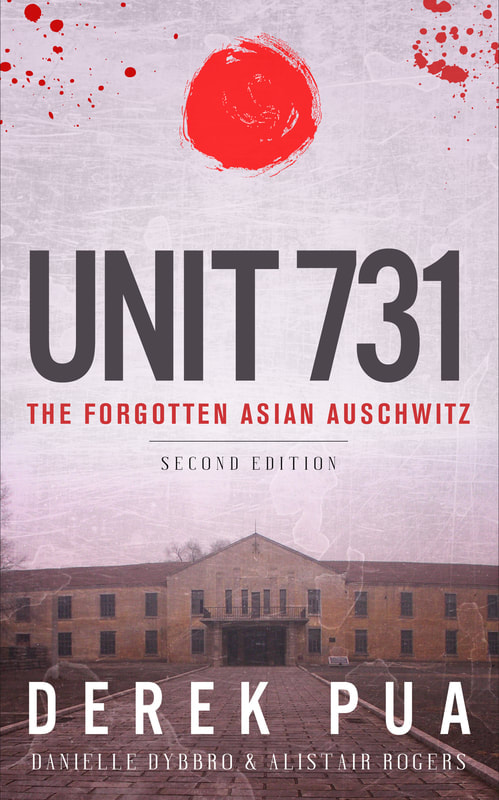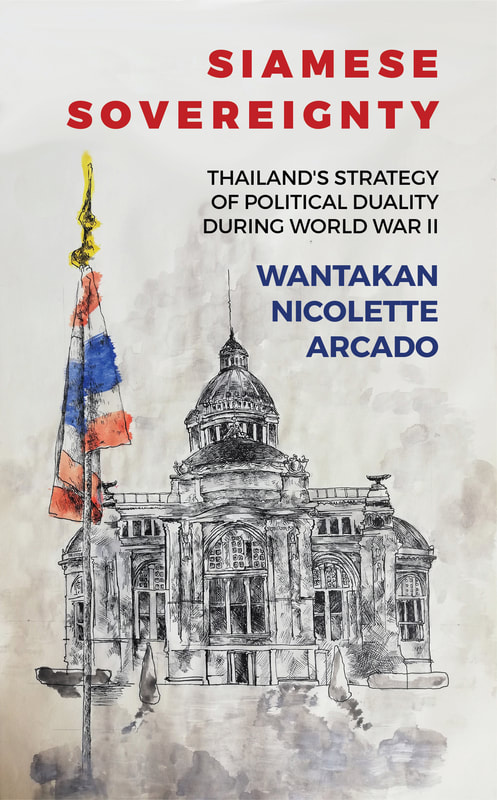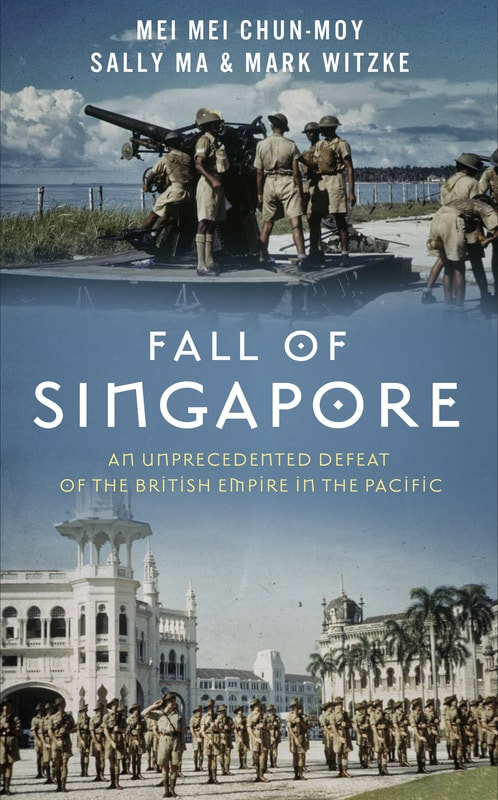|
by Peter Lassalle-Klein
Trade has often been ascribed as one of the core building blocks of a successful and healthy society. This remains true today, as there are a plethora of trade relations branching all around different parts of the world. However, many of these relations connect to a country that has a scarring history of trade deals: China. The most notorious of which is known as the Opium Wars.
The Opium War
The Opium Wars are the two conflicts that occurred in China from 1839-1842 and 1856-1860 during the Qing Dynasty due to the British Empire’s want to force a trade with the Dynasty. The effects of this conflict can be felt even today through China’s attitude towards trade deals, the presence of opium in China, and even the western families who got rich off of selling opium to the Chinses populace.
To start, the British were the ignition of the fire that spewed the cloud of opium into China. The British Empire had just come out on the losing side of a war with its colonies, the newborn United States, and was hemorrhaging money due to the sheer cost of the war, as well as the loss of their cotton production in the West. They desired the rare items of trade from China: porcelain, silk, and most of all, tea. The British addiction to tea made up a notable amount of the Empire’s economy, and with only silver to offer and a single port that trade could take place in (Canton), China had little interest in the Empire’s dealings. However, at the beginning of the 19th century, the British Empire realized that India (which was currently occupied by the Empire) could produce mass amounts of poppies. These poppies could be refined into opium, a highly addictive and destructive drug which was in extreme demand in China, and also happened to be outlawed in. It was so addictive that, as Professor Jack Patrick Hayes of Chinese and Japanese history at Kwantlen Polytechnic University states, “Many people who stopped ingesting opium suffered chills, nausea, and cramps, and sometimes died from withdrawal.” Even with the prohibition of opium, the British Empire set the East India Company to work, a militant trading company under the command of the crown to handle all trading in East Asia. The Company took advantage of its domination over India and created a monopoly on the drug trade, mass-producing opium out of the province of Bengal. In the early 1800s, the substance was smuggled into China through both British and U.S. ships off the coast of Guangzhou. By 1830, there were over 100 Chinese smuggling ships running opium illegally into China, brought from India by private British and U.S. traders under the command of the Honorable East India Company. Although the East India Company lost its monopoly over the opium trade in 1834, the illegal trade was in full force with over 40,000 chests of the drug flowing in per year.
In a response by 1839, the Dynasty took action by cracking down on opium smugglers, destroying the shipments of opium by dumping them into the sea and pushing the traders from Britain and the U.S. to a desolate island which would one day be known as Hong Kong. Despite the knowledge of opium being illegal in China, opium merchants in English India, Britain, and the East India Company were outraged at the destruction of their contraband with compensation, as the Dynasty was not willing to pay for destroying a substance that was outlawed. This gave politicians in Britain the justification they needed to take more aggressive imperialist action to gain “recompense”, and in 1839, the first battle of the First Opium War took place between East India Company and Chinese ships.
The First Opium War painted a clear picture for the Chinese about their Imperialist invaders: they were technologically outmatched. The war only spanned three years from 1839 to 1842, and despite the Chinese constantly outnumbering the British, the Dynasty’s troops could not withstand the Empire’s barrage of cannons and superior naval ability. The Chinese Junks (ancient Chinese sailing ships) were constantly decimated the Empire’s new steam warship, the Nemesis, which carved a bloody path through Chinese waters. The war ended with the Emperor’s surrender and the Treaty of Nanjing, which is often referred to as one of the “Unequal Treaties” that the Chinese had to sign at figurative gunpoint. The Treaty gave the British many exorbitant benefits, such as:
Famous and “respected” families got their start from smuggling opium illegally into China during these wars. The Astors, who are notable members of the British government, were originally known to be the first American smugglers that brought some of the first opium into Canton, China, before quickly leaving the trade as things began to grow tense. The Delano Family, whose descendant is Franklin Delano Roosevelt himself, sold opioids on the Pearl River in China. Warren Delano Jr., the man who headed this business, argued that the sale of such crippling drugs was “fair, honorable, and legitimate.” Even the Forbes family, the same Forbes who founded the massively successful Forbes Magazine, got their massive wealth by being one of the prime opium traders that smuggled the drug into China in the 1830s to the 1840s. All of these families, all of these deals, came off the suffering of the people of China through the sale of an incredibly addictive and destructive drug that was forced upon the populace through war. The people of China make an effort to never forget this humiliation of their strength and culture, especially with the current Trade War taking place between the U.S. and China. In response to the increase in tariffs between the U.S. and China in May, China’s People’s Daily, a known state mouthpiece said: “The text must be balanced and expressed in terms that are acceptable to the Chinese people and do not undermine the sovereignty and dignity of the country.” The government remembers the embarrassment, as well as its people. Li Xuewei, a Chinese medical student from Shandong, commented on the similarities between the current Trade War and the Opium Wars: “We used to be so behind. Everything was destroyed by those invaders . . . I think China isn’t scared of anything anymore. Whatever happens with the trade war, I don’t think we’ll lose.” Through these families that became rich off the exploitation of drug trade and China’s position on trade with the west, the echoes of the Opium Wars live on today. References
Related Books
1 Comment
The First Opium War painted a clear picture for the Chinese about their Imperialist invaders: they were technologically outmatched. The war only spanned three years from 1939 to 1942, and despite the Chinese constantly outnumbering the British,
Reply
Leave a Reply. |
- Home
- Stories
-
Internship
- Summer 2024 Internship
- Summer 2023 Internship
- Fall 2022 Internship
- Summer 2022 Internship
- Summer 2021 Internship
- Fall 2020- Spring 2021 Internship
- Summer 2020 Internship
- Fall 2019 Internship
- Summer 2019 Internship >
- School Year 2018-2019 Internship
- Summer 2018 Internship >
- Fall 2017 Internship
- Summer 2017 Internship >
- Books
- Archives
-
Resource Page
-
Supplementary Research Guides
>
- Unit 731 - Guide >
-
Philippines' Resistance - Guide
>
- Philippines World War II Timeline
- The Japanese Invasion & Conquest of the Philippines
- Bataan Death March
- Formation of Underground Philippines Resistance
- Supplies of the Guerrilla Fighters
- The Hukbalahap
- Hunter's ROTC
- Marking's Guerrillas
- United States Army Forces in the Philippines of Northern Luzon (USAFIP-NL)
- The Aetas
- Chinese and Filipino-Chinese Nationalist Guerrilla Units
- The Female Faces of the Philippine Guerrillas
- Rising Sun Flag - Guide >
- Pinay Guerrilleras - Guide >
- Fall of Singapore - Guide >
- Three Years and Eight Months - Guide >
- Siamese Sovereignty - Guide >
- The Khabarovsk War Crimes Trial - Guide >
- Unit 731 Cover-up : The Operation Paperclip of the East - Guide >
- Marutas of Unit 731 - Guide >
- Prince Konoe Memoir - Guide >
- Competing Empires in Burma - Guide >
- Battle of Shanghai - Guide >
- Ishi Shiro - Guide >
- Taiwan The Israel of the East - Guide >
- Seeking Justice for Biological Warfare Victims of Unit 731 - Guide >
- Rice and Revolution - Guide >
- Clash of Empires - Guide >
-
Hunger for Power and Self-SufficiencyI - Guide
>
- The Influence of War Rations on Post-War Culinary Transformations
- How World War II Complicated Food Scarcity and Invention
- American Military Innovations
- Government-Sponsored Food Inventions in Europe during World War II
- Feeding the Army: The Adaptation of Japanese Military Cuisine and Its Impact on the Philippines
- Mixed Dishes: Culinary Innovations Driven by Necessity and Food Scarcity
-
Denial A Quick Look of History of Comfort Women and Present Days’ Complication - Guide
>
- The Comfort Women System and the Fight for Recognition
- The Role of Activism and International Pressure
- The Controversy over Japanese History Textbooks
- The Sonyŏsang Statue and the Symbolism of Public Memorials
- Activism and Support from Japanese Citizens
- The Future of Comfort Women Memorials and Education
- Echoes of Empire: The Power of Japanese Propaganda - Guide >
- Lesson Plans >
-
Supplementary Research Guides
>
|
Pacific Atrocities Education
730 Commercial Street San Francisco, CA 94108 415-988-9889 |
Copyright © 2021 Pacific Atrocities Education.
We are a registered 501 (c)(3) charity. |
- Home
- Stories
-
Internship
- Summer 2024 Internship
- Summer 2023 Internship
- Fall 2022 Internship
- Summer 2022 Internship
- Summer 2021 Internship
- Fall 2020- Spring 2021 Internship
- Summer 2020 Internship
- Fall 2019 Internship
- Summer 2019 Internship >
- School Year 2018-2019 Internship
- Summer 2018 Internship >
- Fall 2017 Internship
- Summer 2017 Internship >
- Books
- Archives
-
Resource Page
-
Supplementary Research Guides
>
- Unit 731 - Guide >
-
Philippines' Resistance - Guide
>
- Philippines World War II Timeline
- The Japanese Invasion & Conquest of the Philippines
- Bataan Death March
- Formation of Underground Philippines Resistance
- Supplies of the Guerrilla Fighters
- The Hukbalahap
- Hunter's ROTC
- Marking's Guerrillas
- United States Army Forces in the Philippines of Northern Luzon (USAFIP-NL)
- The Aetas
- Chinese and Filipino-Chinese Nationalist Guerrilla Units
- The Female Faces of the Philippine Guerrillas
- Rising Sun Flag - Guide >
- Pinay Guerrilleras - Guide >
- Fall of Singapore - Guide >
- Three Years and Eight Months - Guide >
- Siamese Sovereignty - Guide >
- The Khabarovsk War Crimes Trial - Guide >
- Unit 731 Cover-up : The Operation Paperclip of the East - Guide >
- Marutas of Unit 731 - Guide >
- Prince Konoe Memoir - Guide >
- Competing Empires in Burma - Guide >
- Battle of Shanghai - Guide >
- Ishi Shiro - Guide >
- Taiwan The Israel of the East - Guide >
- Seeking Justice for Biological Warfare Victims of Unit 731 - Guide >
- Rice and Revolution - Guide >
- Clash of Empires - Guide >
-
Hunger for Power and Self-SufficiencyI - Guide
>
- The Influence of War Rations on Post-War Culinary Transformations
- How World War II Complicated Food Scarcity and Invention
- American Military Innovations
- Government-Sponsored Food Inventions in Europe during World War II
- Feeding the Army: The Adaptation of Japanese Military Cuisine and Its Impact on the Philippines
- Mixed Dishes: Culinary Innovations Driven by Necessity and Food Scarcity
-
Denial A Quick Look of History of Comfort Women and Present Days’ Complication - Guide
>
- The Comfort Women System and the Fight for Recognition
- The Role of Activism and International Pressure
- The Controversy over Japanese History Textbooks
- The Sonyŏsang Statue and the Symbolism of Public Memorials
- Activism and Support from Japanese Citizens
- The Future of Comfort Women Memorials and Education
- Echoes of Empire: The Power of Japanese Propaganda - Guide >
- Lesson Plans >
-
Supplementary Research Guides
>
